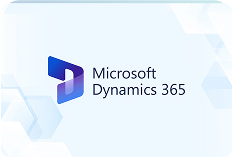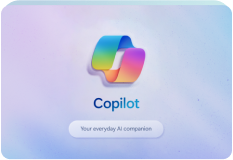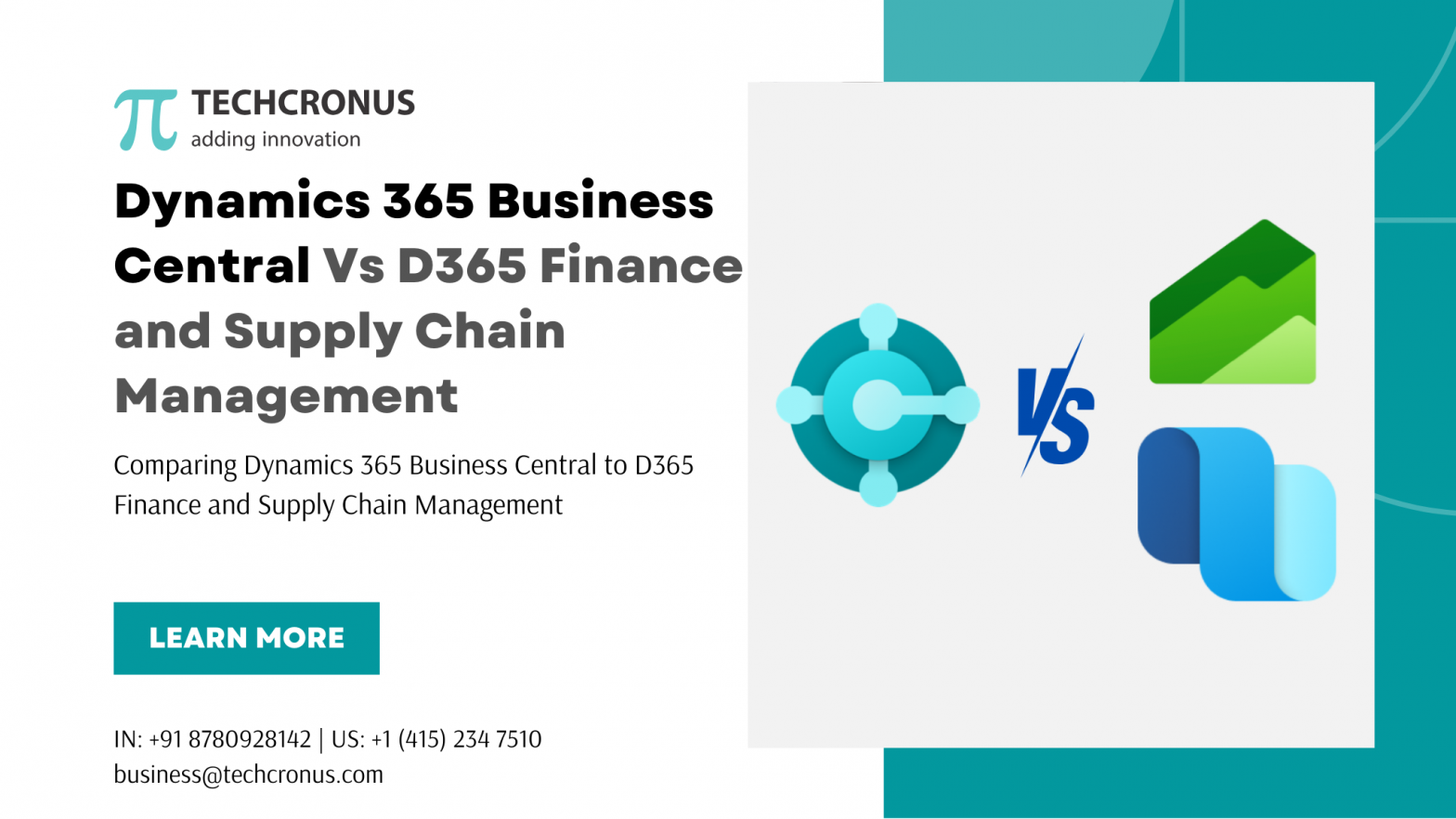Table of Contents
Amidst the ever-changing world of enterprise resource planning (ERP) solutions, Microsoft’s Dynamics 365 Business Central stands out for its extensive features designed to cater to the unique requirements of organizations in different industries.
More and more companies are emerging from their shells and shifting their operations to cloud ERPs, abandoning their outdated ERP systems in the process. It helps them avoid manual software updates. Companies who are serious about data security are prepared to take advantage of the latest ERP system’s artificial intelligence (AI) and cutting-edge cloud features. Being able to get this for a lesser cost makes them very interested.
Two essential tools that help simplify operations, increase efficiency, and propel businesses forward are Dynamics 365 Finance and Supply Chain Management (F&SCM) and Dynamics 365 Business Central, which are part of the same portfolio.
Dynamics 365 Business Central
Dynamics 365 Business Central is a comprehensive, cloud-based enterprise resource planning (ERP) solution developed by Microsoft. Aimed primarily at small to medium-sized businesses (SMBs), Business Central offers a versatile platform to manage various aspects of business operations, including finance, sales, customer service, and supply chain activities.
It integrates seamlessly with other Microsoft products, such as Microsoft 365, and provides businesses with the tools they need to streamline operations, enhance customer interactions, and drive growth through informed decision-making.
Notable Features of Dynamics 365 Business Central
Financial Management
Accounting and Finance: Business Central offers robust accounting tools that support financial reporting, banking, and cash management. It allows businesses to monitor their financial performance in real-time, with comprehensive reporting and analytics capabilities.
Budgeting and Forecasting: Users can create detailed budgets and financial forecasts, enabling them to plan for future expenses and revenues accurately.
Sales and Service Management
Customer Relationship Management (CRM): The platform includes CRM capabilities to help businesses manage customer interactions, track sales opportunities, and deliver superior service.
Service Order Management: Businesses can manage after-sales services, including creating service orders, scheduling service visits, and tracking parts and supplies.
Project Management
Project Accounting: Users can track project costs, manage budgets, and monitor project progress against set milestones.
Resource Management: The software allows for effective allocation of resources, including employees and equipment, to projects.
Manufacturing
Production Planning: The solution supports production orders, bills of materials, and supply planning to ensure efficient manufacturing processes.
Capacity Planning: Businesses can manage their manufacturing capacity, plan for machine and labor resources, and schedule production runs effectively.
Integration and Customization
Integration with Other Microsoft Products: Business Central integrates seamlessly with other Microsoft products, such as Microsoft 365, Power BI, and Dynamics 365 for Sales, enhancing productivity and collaboration.
Customization and Extensions: The platform can be customized to meet specific business needs, with a wide range of available extensions and the ability to develop custom functionalities.
Dynamics 365 Finance and Supply Chain Management
Dynamics 365 Finance and Supply Chain Management (F&SCM) is a powerful, enterprise-level ERP solution developed by Microsoft, designed to address the complex needs of larger organizations. By offering sophisticated functionalities for financial management, operations, manufacturing, and supply chain optimization, F&SCM helps enterprises streamline their processes, reduce operational costs, and improve overall efficiency.
This solution stands out for its ability to support global operations with multi-currency and multi-language capabilities, compliance with various international standards, and scalability to handle high-volume transactions.
Notable Features of Dynamics 365 Finance and Supply Chain Management
Advanced Financial Management
Global Financial Management: F&SCM provides comprehensive tools for managing global finances, including multi-currency transactions, global accounting standards compliance, and consolidated financial reporting.
Budgeting and Forecasting: Advanced budgeting tools and AI-driven insights help businesses forecast financial performance, manage budgets, and conduct financial analysis to drive strategic decisions.
Intelligent Operations
Cost Accounting: Helps in analyzing and optimizing the cost structures of various business operations, providing insights into profitability and cost reduction opportunities.
Asset Management: Efficient management of physical assets, from acquisition through disposal, ensuring optimal utilization and maintenance scheduling.
Supply Chain Management
Inventory and Warehouse Management: Offers advanced inventory management capabilities, including real-time visibility, automated replenishment, and streamlined warehouse operations to optimize stock levels and reduce costs.
Procurement and Sourcing: Streamlines procurement processes with automated workflows, vendor management, and purchasing strategies to improve efficiency and reduce expenses.
Manufacturing
Process, Discrete, and Lean Manufacturing: Supports a range of manufacturing types with tools for planning, scheduling, and executing production, ensuring efficiency and flexibility in manufacturing operations.
Product Lifecycle Management: Facilitates the management of product information, design, and engineering processes to shorten product development cycles and bring products to market more quickly.
Project Management
Project Accounting and Cost Control: Enables detailed project accounting, budgeting, and cost control to ensure project profitability and on-time delivery.
Resource Management: Effective allocation and management of project resources, including labor, materials, and equipment.
Global Trade
Transportation Management: Optimizes logistics and transportation operations to reduce costs and improve delivery times.
Compliance Management: Ensures compliance with local and international trade regulations, reducing the risk of penalties and facilitating smooth operations across borders.
AI and Analytics
Embedded Analytics: Real-time analytics and predictive insights are embedded throughout the solution, enabling data-driven decision-making and strategic planning.
AI-Driven Insights: Utilizes Copilot AI to provide actionable insights, forecast outcomes, and automate complex processes, enhancing operational efficiency.
Key Differentiators Between Dynamics 365 Business Central vs Dynamics 365 Finance and Supply Chain Management
To make an informed decision, it’s essential to understand the key differences and similarities between these two robust platforms, focusing on features, functionalities, pricing models, scalability, and integration capabilities. This analysis also highlights specific use cases or industries where one solution may be more advantageous.
Features and Functionalities
Core functions of Dynamics 365 Business Central include project management, inventory, sales, and financial management; it is specifically tailored to meet the needs of small and medium-sized businesses. It is characterized by its intuitive interface, quick deployment options, and affordability, making it accessible for businesses with limited IT resources.
Dynamics 365 Finance & Supply Chain Management is tailored for medium to large enterprises with complex operational needs. It offers a wide range of functionalities, including financial management, supply chain management, manufacturing, and human resources. This solution is known for its scalability, advanced features, and ability to handle high volumes of transactions.
Pricing Models and Implementation
BC presents a more cost-effective solution with lower upfront costs and quicker deployment options, within 6-8 months. It is suitable for businesses looking for a comprehensive yet user-friendly ERP solution without the complexity and extensive customization.
F&SCM involves higher upfront costs and longer implementation times due to its complexity, scalability, and broader range of customization options. It is well-suited for larger enterprises that require a robust ERP solution to manage intricate business processes.
Scalability
Business Central offers scalability up to a point but may face limitations as organizations expand and their operational needs become more complex.
Finance & Supply Chain Management boasts superior scalability and growth potential, accommodating the evolving needs of larger enterprises over time.
Integration Capabilities
Both solutions offer seamless integration with other Microsoft applications, such as Microsoft 365 and Power BI, enhancing collaboration and data-driven decision-making across the organization. However, F&SCM provides deeper integrations with CRM, HR, Talent, Customer Service, Marketing, and other Dynamics 365 components, making it a more comprehensive solution for enterprises operating on a global scale.
Specific Use Cases and Industries
Business Central is particularly suitable for distribution/trade, manufacturing, and professional services industries with simpler operational requirements. It has been successfully implemented by companies including major names such as Coca-Cola and Johnson & Johnson, debunking the myth that it is only for small organizations.
Finance & Supply Chain Management is ideal for organizations with complex operational structures, including distribution, manufacturing, retail, professional services, and the public sector. It supports approximately 90% of manufacturing functionalities and offers advanced compliance, reporting, and analytics features, making it suitable for industries with stringent regulatory requirements.
Benefits of Opting For Cloud-based ERP Solutions
Cloud-based Enterprise Resource Planning (ERP) solutions such as Microsoft Dynamics 365 offer a multitude of advantages over legacy on-premise systems.
Improved Accessibility: Cloud-based systems like Dynamics 365 can be accessed from anywhere at any time, provided there’s an internet connection. This facilitates remote work and ensures that employees can stay productive regardless of their physical location.
Scalability: Cloud-based ERPs allow businesses to scale their operations up or down with ease. Companies can adjust their subscription plans in Dynamics 365 based on current needs, without significant upfront costs.
Cost-Effectiveness: Unlike traditional ERP systems that require significant upfront investment in hardware and software, cloud-based solutions like Dynamics 365 operate on a subscription basis, significantly reducing initial costs. The operational expenses can be lower with cloud-based ERPs since the vendor is responsible for maintenance, upgrades, and infrastructure.
Data Security: Dynamics 365 benefits from Microsoft’s robust security protocols, including data encryption, secure data centers, and compliance with industry standards, ensuring data is protected against unauthorized access and cyberthreats. Cloud solutions offer built-in disaster recovery and data backup services, ensuring business continuity in the event of data loss or a security breach.
Real-Time Collaboration: Dynamics 365 provides a unified platform for all business operations, facilitating real-time collaboration and communication among teams. This ensures that everyone is on the same page and can make informed decisions quickly.
Integration Capabilities: With seamless integration with other Microsoft tools like Microsoft 365 and Power BI, Dynamics 365 enhances collaboration and data sharing across applications, improving organizational efficiency.
Automatic Software Updates: One of the standout benefits of cloud-based ERP solutions is the automatic updates provided by the vendor. This ensures that businesses always have access to the latest features, security patches, and improvements without the need for manual intervention.
Which One To Choose – Dynamics 365 Business Central vs Dynamics 365 Finance and Supply Chain Management
The decision between Dynamics 365 Business Central and Dynamics 365 Finance & Supply Chain Management is pivotal for organizations aiming to harness the full potential of cloud-based ERP solutions.
Dynamics 365 Business Central stands out as an intuitive, cost-effective solution designed for small to medium-sized businesses. Its core functionalities cover financial management, sales, inventory, and project management, providing a comprehensive suite for organizations looking to streamline operations without the complexity of larger ERP systems.
Dynamics 365 Finance & Supply Chain Management caters to medium to large enterprises requiring a robust, scalable ERP solution to manage complex processes and high volumes of transactions. With advanced features across financial management, supply chain, manufacturing, and human resources, it offers the depth and breadth needed by organizations with intricate operational structures.
Choosing between these two powerful Microsoft Dynamics 365 solutions requires a thorough analysis of your business’s size, growth trajectory, operational complexity, and specific industry needs. Whether you’re leaning towards the agility and user-friendliness of Business Central or the comprehensive, scalable environment of Finance & Supply Chain Management, the key is to align your choice with your strategic objectives and operational demands.
For businesses navigating this crucial decision, partnering with an experienced Microsoft solutions partner like Techcronus can provide invaluable insights and support.
Choosing the right Dynamics 365 solution is a strategic decision that can significantly impact your business’s efficiency, growth, and competitive edge. Make this decision with confidence by leveraging the expertise and support of Techcronus – your trusted Microsoft solutions partner























